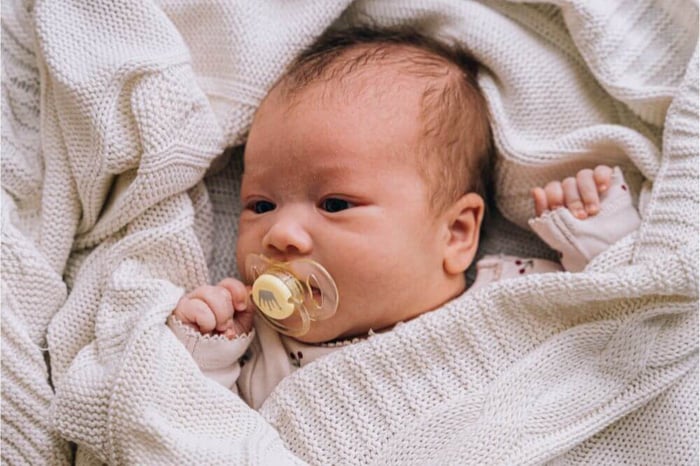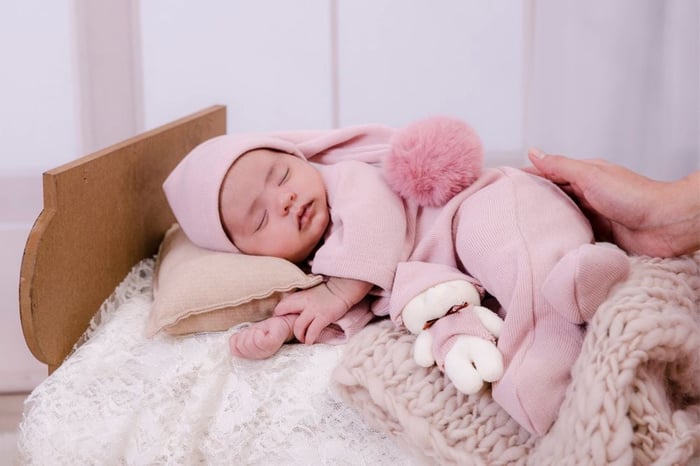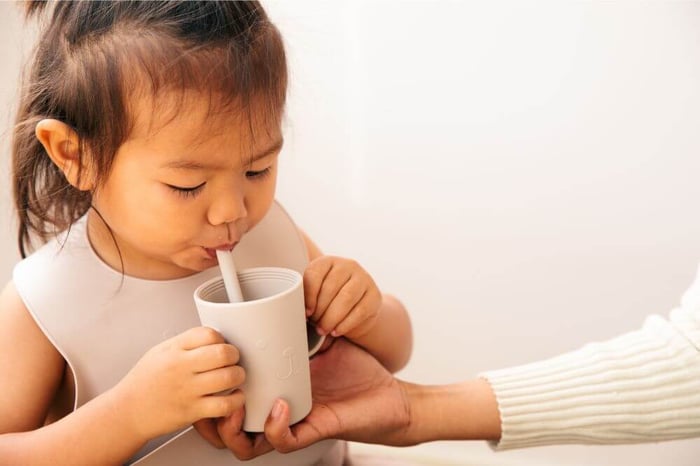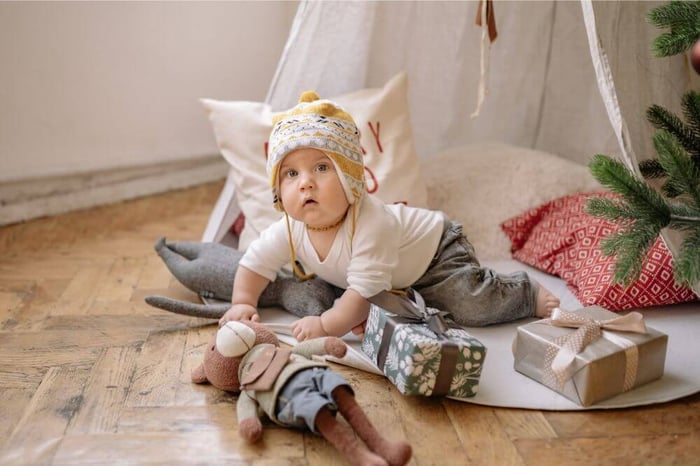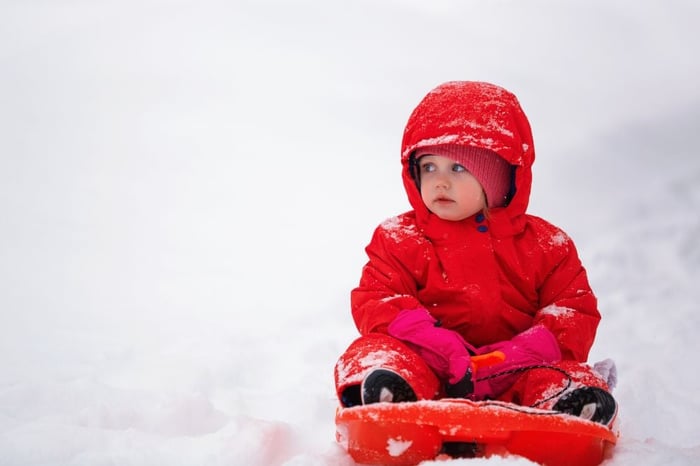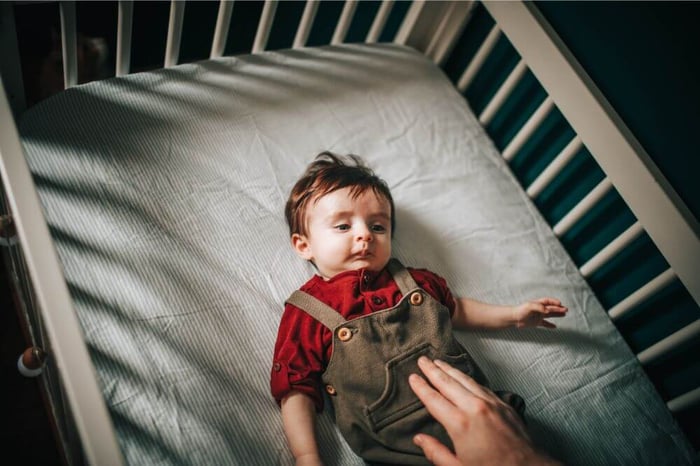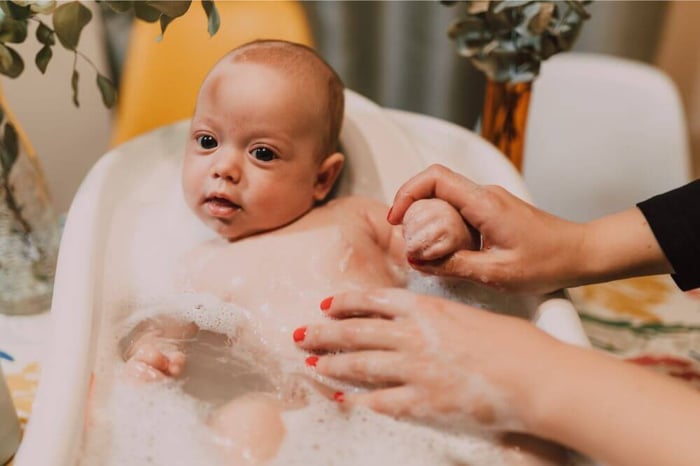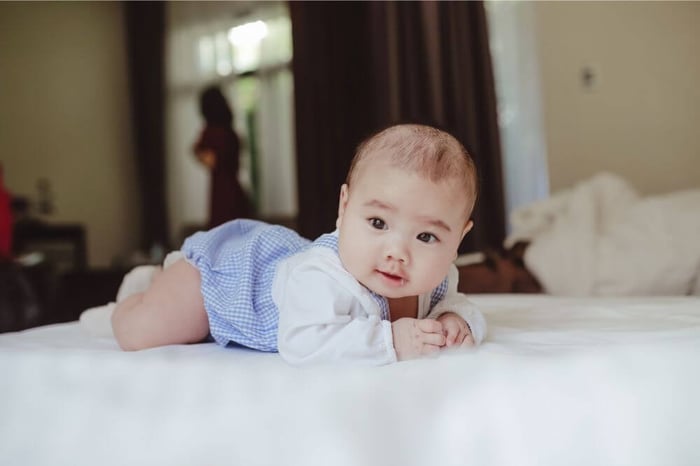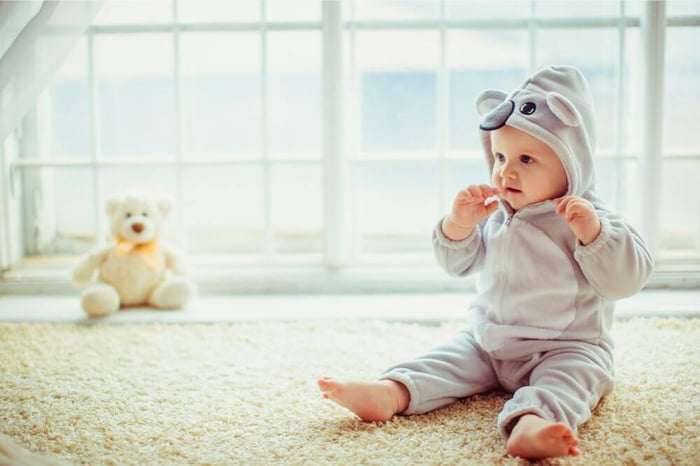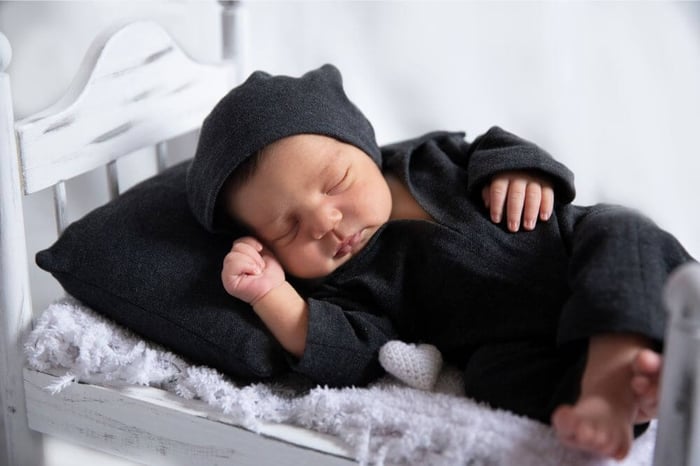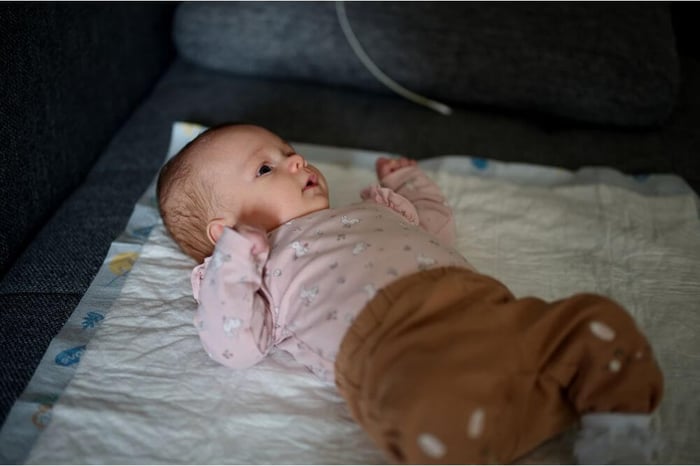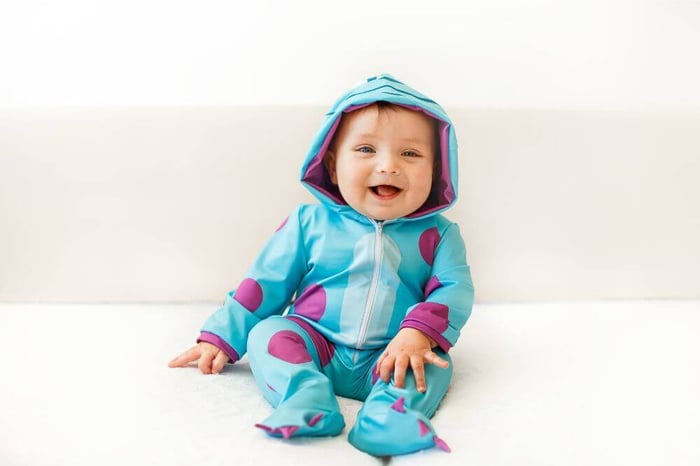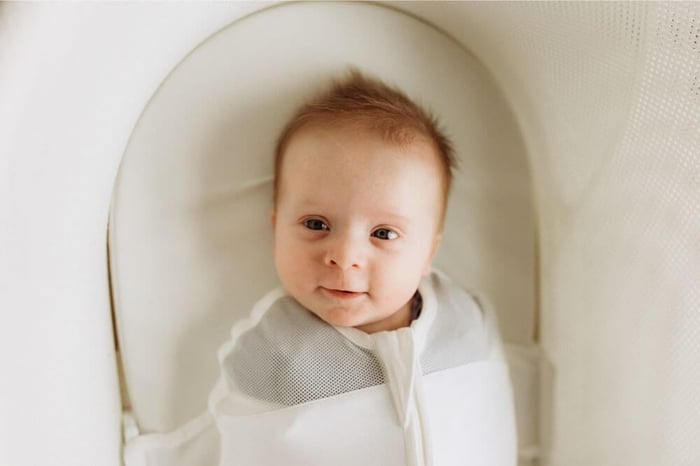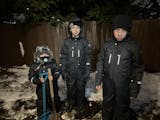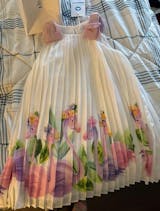Can Babies Sleep with a Pacifier
It's 2 a.m., and your little one is wide awake, crying their lungs out while you desperately crave some sleep. You've rocked, hummed lullabies, but you still find yourself circling the nursery floor at midnight with a fussy baby who just won't drift off? Then it hits you—a pacifier. But then you pause and wonder, "Can babies sleep with a pacifier?" Is it safe? Will it help?
Well, you are not alone in this thought. This is a question that crosses every new parent’s mind. They wonder if it's safe to let their little ones snooze with a baby pacifier.
In this blog, we will explore everything you need to know about letting your baby sleep with a pacifier—from the right time to introduce it to the best pacifiers for newborns and tips on maintaining healthy sleep habits. Let's get started!
Should You Remove Pacifier When Baby is Sleeping?
No need. In fact, doing that might wake them up, and we don’t want that, do we? Letting your newborn sleep with a pacifier is generally considered safe. In fact, several studies suggest that pacifier usage during sleep is helpful in reducing the risk of Sudden Infant Death Syndrome (SIDS).
The American Academy of Pediatrics (AAP) recommends offering a pacifier at nap time and bedtime for this very reason. The pacifier doesn't interfere with your baby's breathing and can provide a soothing effect that helps them fall asleep more easily.
Benefits of Baby Sleeping with a Pacifier
Does your baby fall asleep while nursing, then wakes up when put down? We have all been there, and sometimes it feels like you have tried everything. But have you considered letting your baby sleep with a pacifier? A pacifier can help bridge the comfort gap. It provides the sucking sensation without feeding.
Using a baby binky during sleep is totally safe and also comes with several perks:
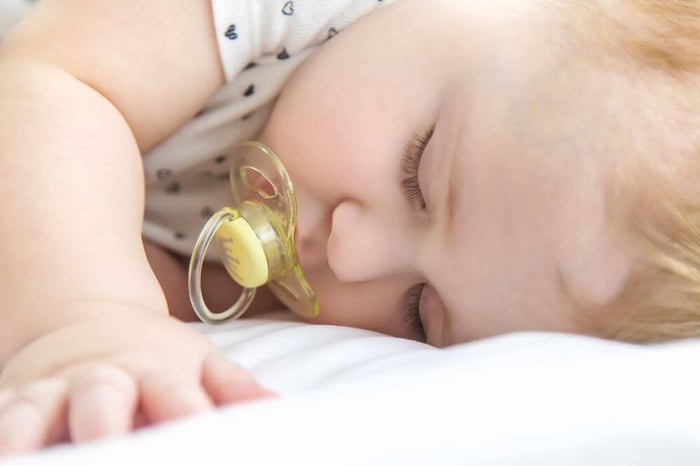
1. Reduces the Risk of SIDS
One of the most significant advantages is that using a pacifier during sleep can lower the risk of Sudden Infant Death Syndrome (SIDS). Studies have shown that when a newborn sleeps with a pacifier, it can help keep their airway open. So, if you have been wondering, "Are pacifiers good for babies?” this is a reassuring reason to consider.
2. Soothes and Comforts Your Baby
Your baby won't stop crying even after being fed, changed, and cuddled? Sometimes, they just need to satisfy their natural sucking reflex. A baby binky can be a real helper here. It provides the comfort they crave, turning a restless night into a peaceful one.
Over time, your baby with pacifier may learn to self-soothe, leading to better sleep habits and less nighttime waking.
3. Helps with Self-Soothing
Introducing a pacifier can help your little one learn to calm themselves down. Instead of needing to be rocked or nursed every time they stir, your baby with pacifier might start to self-soothe which eventually helps them fall asleep faster and also mean fewer nighttime wake-ups for you.
4. Eases Teething Discomfort
A very common question among new parents is: what to do when baby is teething and keeps crying?
When those tiny teeth start to make an appearance, discomfort is inevitable. A pacifier gives your baby something safe to chew on, which can relieve some of the pain. If you are dealing with a baby who won't stop crying because of teething, this might be the relief they need.
5. Promotes Better Sleep for Everyone
Let's be honest; a well-rested baby means well-rested parents. By helping your baby drift off and stay asleep, a pacifier can improve sleep quality for the whole family. No more tiptoeing around the house or spending hours trying to soothe a crying baby. It's a win-win!
Risks of Baby Sleeping with a Pacifier
While there are clear benefits, it's important to be aware of potential risks:
- Dental Issues: Prolonged use can lead to pacifier teeth or binky teeth, affecting the alignment of your baby's teeth and jaw.
- Dependency: Your baby might become reliant on the pacifier to fall asleep, leading to frequent night wakings if it falls out.
- Ear Infections: Some studies suggest a slight increase in ear infections with extended pacifier use.
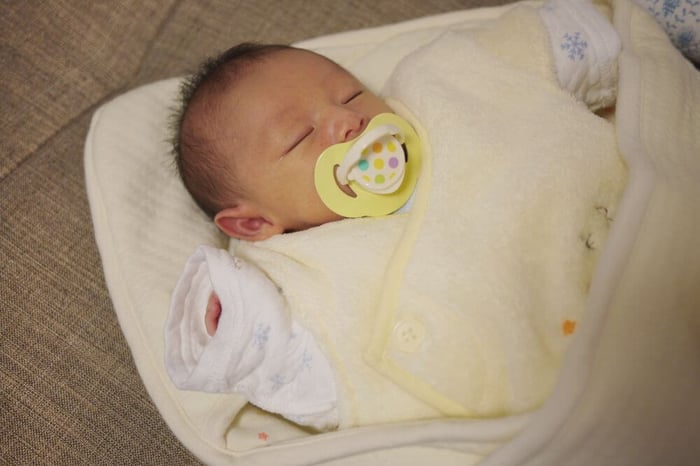
What Age Can a Baby Sleep with a Pacifier?
Timing is everything when introducing a pacifier to your baby. If you're breastfeeding, it's recommended to wait until your baby is about three to four weeks old. This delay ensures that breastfeeding is well-established, reducing the risk of nipple confusion. For bottle-fed babies, you can introduce a newborn pacifier whenever you feel comfortable, even if your baby is just 4 days old. Just make sure it's the right size for their tiny mouth.
When to Introduce Pacifier
Breastfed Babies: After 3-4 weeks, once breastfeeding routines are established.
Bottle-fed Babies: Anytime you're comfortable, even if it's with a 4-day-old baby.
Should Newborns Use Pacifiers While Sleeping?
Yes, but with some considerations. It is safe for a newborn to sleep with a pacifier, but it is essential to follow safety guidelines. Here are some tips to ensure your baby's needs are met safely.
Pacifier Safety Guidelines for Infants
- Choose the Right Size: Ensure you're using pacifiers for newborns if your baby is under six months.
- Material: Opt for BPA-free, medical-grade silicone for safety.
- One-Piece Design: Go for a one-piece pacifier to prevent parts from breaking off.
- Keep It Clean: Regularly sterilize the pacifier to prevent germs.
- Avoid Attachments: Never attach a pacifier to your baby with a string or cord due to strangulation risks.
- Inspect Regularly: Check for wear and tear to prevent any choking hazards.
How to Introduce a Pacifier for Sleep?
Decided to give the pacifier a go? Great choice! Here's how to introduce it to your baby in a way that's smooth and stress-free.
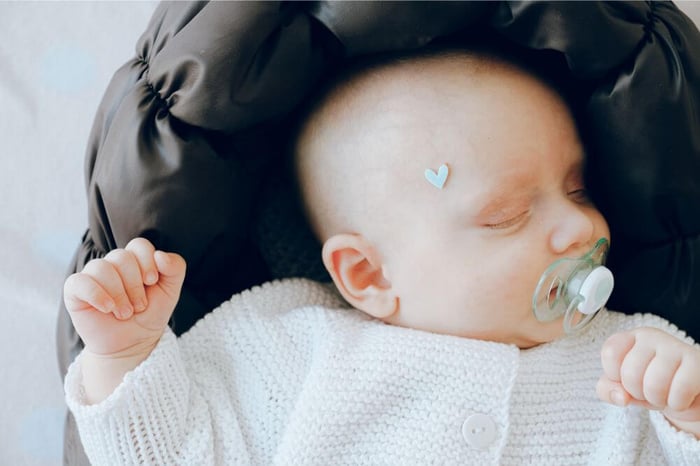
A Step-by-Step Guide:
1. Choose the Right Moment
Give your baby the pacifier when they are calm and not overly hungry or tired. Mid-morning or after a feeding might be ideal times.
2. Select the Appropriate Pacifier
Make sure you're using a pacifier that's suitable for your baby's age. For newborns, go for the best pacifiers for newborns designed for their smaller mouths.
3. Gently Offer It
Hold the pacifier near your baby's mouth and let them decide to take it. Forcing it can create resistance.
4. Combine with Comforting Techniques
You can pair the pacifier with gentle rocking or a soothing voice to create a positive association.
5. Be Patient
It might take a few tries before your baby accepts the pacifier. Don't get discouraged if they refuse it initially.
Tips for Success
Try Different Styles: Babies can be picky! Experiment with different shapes and materials.
Warm It Up: Some babies prefer a warm pacifier, so hold it in your hand for a minute.
Stay Consistent: Use the pacifier consistently during sleep times to build a routine.
Frequently Asked Questions About Babies Sleeping with Pacifiers
1. How Long Can a Baby Sleep with a Pacifier?
Your baby can sleep with a pacifier for as long as they like during the night. There's no specific time limit on how long can babies sleep with a pacifier. So, if your little one finds comfort in their binky, there's no need to take it away while they're sleeping.
2. When Should I Remove the Pacifier from My Sleeping Baby?
Generally, there's no need to pull it out once they've drifted off. Many babies will naturally let the pacifier fall out of their mouth during deep sleep. Unless the pacifier is causing any discomfort or posing a safety risk, it's perfectly fine to let your baby sleep with pacifier in place. If you're considering weaning them off, it's usually recommended to start after six months, but every child is different.
3. Can a 4 Day-Old Baby Sleep with a Pacifier?
Yes, a 4-day-old baby can sleep with a pacifier, especially if they're bottle-fed. Using a pacifier can be helpful in soothing a fussy baby during those early days when everything is new—for both of you! Just make sure you're using one of the best pacifiers for newborns to ensure the right fit and safety.
4. How Can I Keep the Pacifier in My Baby's Mouth While Sleeping?
This is a common challenge. To help keep the pacifier in your baby's mouth while sleeping, you might try using a pacifier that's specifically designed for sleep, such as ones with a symmetrical shape or a softer nipple. Make sure the pacifier is the right size for your baby's age—pacifiers for newborns differ from those for older infants. However, it's important not to force the pacifier back in if it falls out. Sometimes, babies just prefer to sleep without it after they've settled down.
Final Thoughts
So, can a baby sleep with a pacifier? Yes, it can. With proper use and safety precautions, a pacifier can prove to be effective for soothing your baby and promoting better sleep. Always remember that every baby is different, and what works for one may not work for another. Pay attention to your baby's needs and consult with your pediatrician if you have any concerns.
Parenthood is a challenging journey filled with questions and learning experiences. Embrace each moment, trust your instincts, and know that it's okay to seek guidance along the way. After all, parenting is as much about learning as it is about teaching. Sweet dreams to you and your little one!

